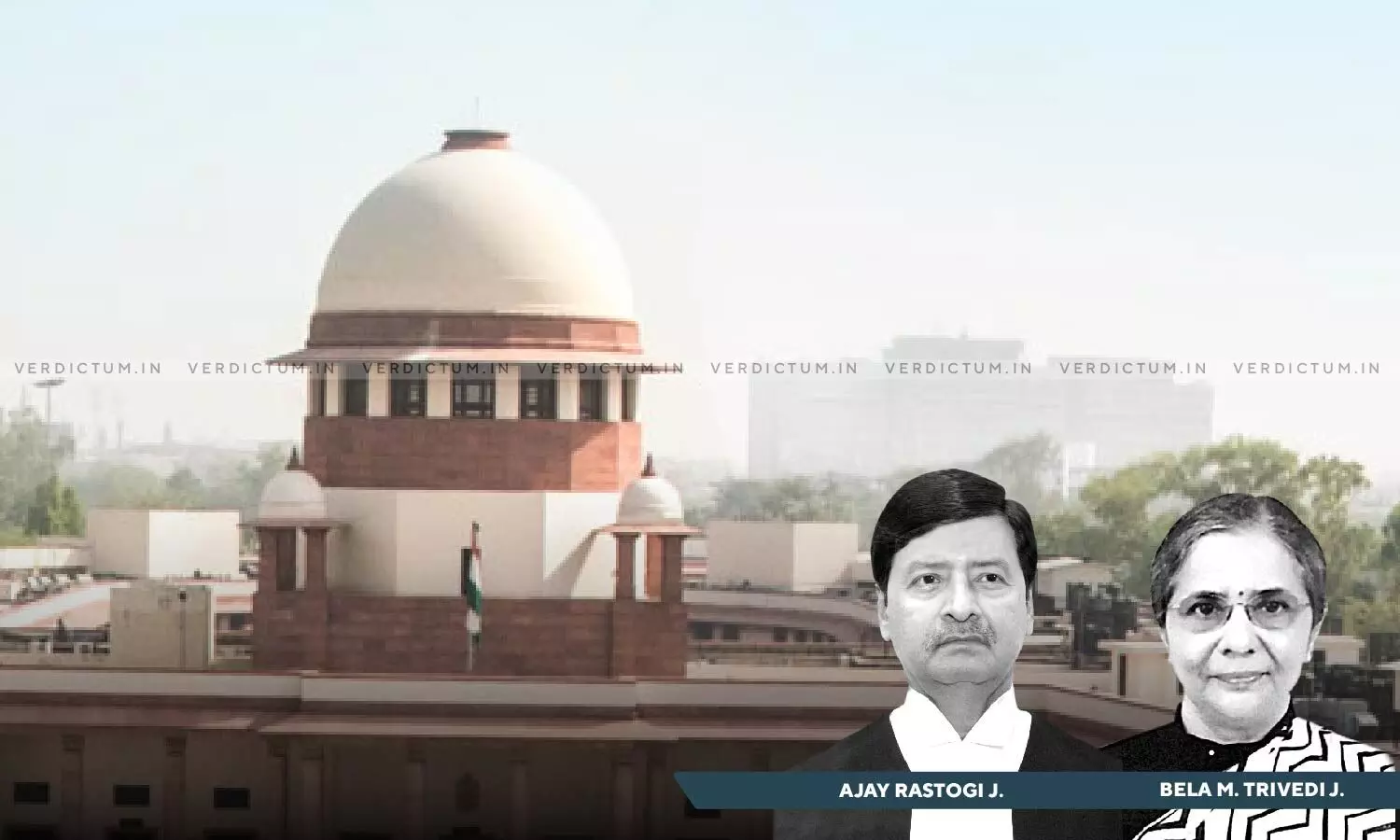
In Absence Of Sanctioned Post, State Cannot Be Compelled To Create Post & Absorb Persons Continuing In Service: SC
 |
|The Supreme Court has observed that in case of absence of sanctioned post, the State cannot be compelled to create the post and absorb the persons who are continuing in service.
The two-Judge Bench comprising Justice Ajay Rastogi and Justice Bela M. Trivedi said, “… in absence of sanctioned post, the State cannot be compelled to create the post and absorb the persons who are continuing in service of the State. … We are of the considered view that the direction of the High Court to reinstate after creating the posts and absorb the respondents based on their qualification is not sustainable in law and deserves outright rejection.”
The Bench was dealing with a case relating to reinstatement and regularisation of members of the Makkal Nala Paniyalargal (MNP) associations who had served as Village Level Workers in the Tamil Nadu State.
Advocates D. Kumana and Vinodh Kanna appeared on behalf of the appellants while Advocates R. Nedumaran, Sureshan P., and Naresh Kumar appeared on behalf of the respondents.
Facts -
A batch of appeals were filed at the instance of State of Tamil Nadu assailing the judgment passed by the High Court affirming the order of a Single Judge directing the State Government to create the posts under the designation “Village Level Workers” which is called “Makkal Nala Paniyalargal” (MNP). But the direction was also to accommodate the persons who were on the rolls of MNP on the date of issuance of G.O.M against any vacant post in the State Government schools, village Panchayats, town Panchayats, Municipalities, Corporations, Collector Office, village offices or any other Government offices and undertakings of the Government of Tamil Nadu throughout the State of Tamil Nadu, according to the qualification possessed by each candidate, without reference to age in their native, taluk or revenue District.
It was further directed that if any one of the MNP could not be accommodated or is ineligible, the State Government shall pay the last drawn salary for the period from December1, 2011 to May 31, 2012. A total of 25,234 workers were to be engaged throughout the State on a monthly honorarium of Rs. 200/¬- and it entrusted separate responsibilities to male and female workers.
The Supreme Court after hearing the contentions of the counsel asserted, “So far as the impugned direction to the State Government for their reinstatement and regularization is concerned, in our considered view, it is completely misplaced and not sustainable in law. … The justification has been tendered that such persons who have not been re-engaged by the State Government under its present policy dated 7th June, 2022 are entitled for their honorarium for the period from 1st December, 2011 to 31st May, 2012, we make it clear that such of the employees who have not joined pursuant to the scheme introduced by Government dated 7th June, 2022, they are always at liberty to accept their honorarium for the period of 6 months but as the Government has already offered them honorarium earlier, they are not entitled to any interest on the said principal amount.”
The Court further noted that the total amount as per the honorarium of MNP fixed at that time comes to Rs. 25,851/- (from December 2011 to May 2012) and that if an application is filed, the State Government may at least remit the money into the bank account of the individual.
“We make it clear that such persons who have joined pursuant to the scheme introduced by the Government dated 7th June, 2022 in fulfilment of the object of the Act, 2005 shall remain co¬terminus with the scheme and be allowed to continue as long as the scheme remain in force”, held the Court.
The Court directed that the appellants shall make over the money to such MNP through RTGS or any other mode after due verification within three months.
“In our considered view, the judgment passed by the Division Bench of the High Court for the reasons afore¬stated is not sustainable and deserves to be set aside”, concluded the Court.
Accordingly, the Court allowed the appeals and set aside the judgment of the High Court.
Cause Title- The Government of Tamil Nadu v. Tamil Nadu Makkal Nala Paniyalargal and Ors.